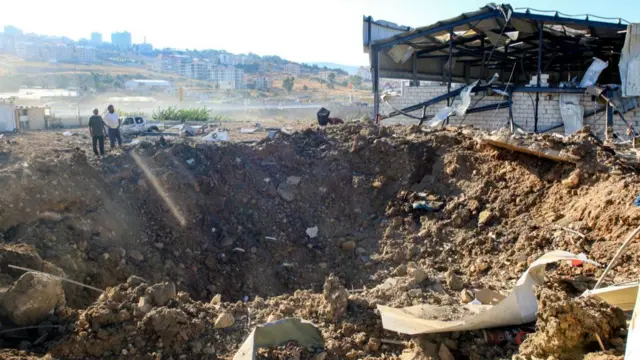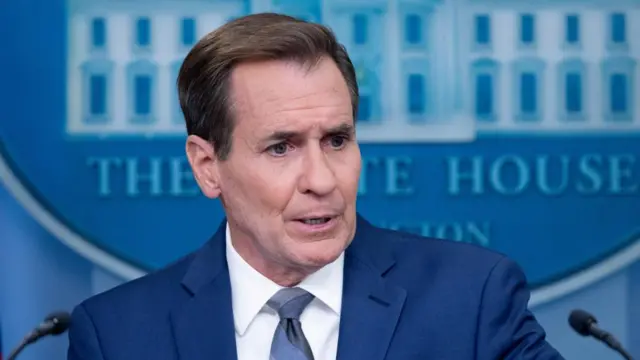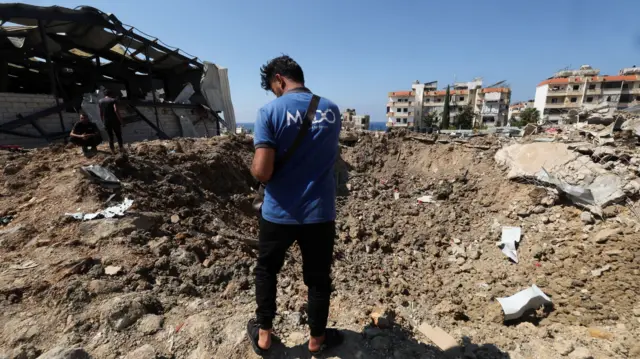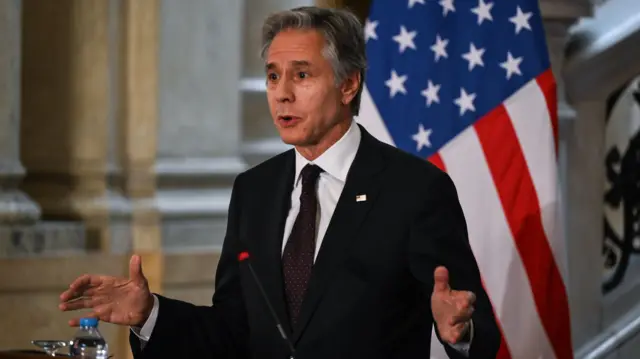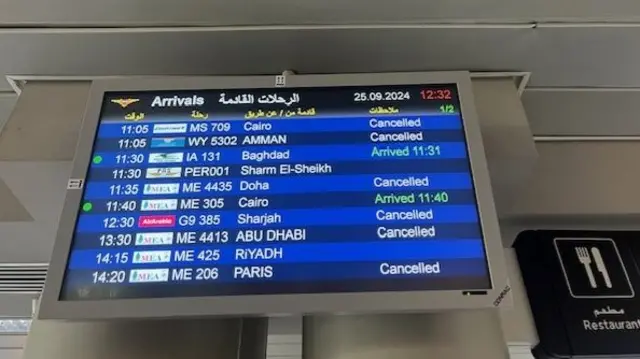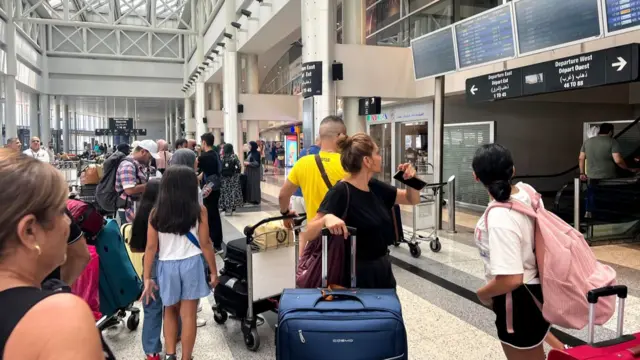People fleeing southern Lebanon 'sleeping on roadsides'published at 15:39 BST 25 September 2024
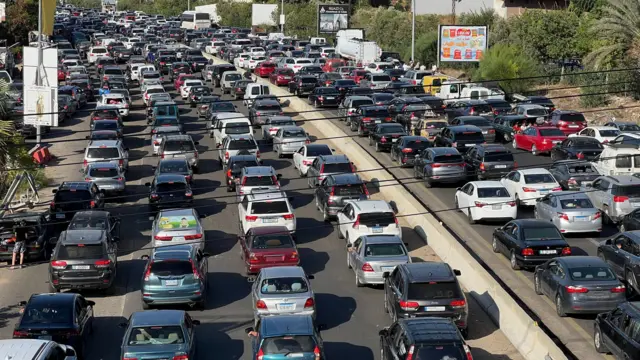 Image source, EPA
Image source, EPAPeople fleeing southern Lebanon are sleeping on the sides of roads as they head north, an aid worker tells the BBC's World At One.
Speaking from Marjayoun in the south-east of the country, Eva Homsi, an emergency coordinator and head of programming at Shield, says roads were blocked by the sheer number of people seeking safety.
She says it was "really hard" to see people sleeping in their parked cars and "on the road without blankets, without pillows, without mattresses, without food".
A combination of blocked roads and Israeli air strikes also meant supplies are not arriving, she says, adding that bread and medicine have not been delivered since Sunday.
